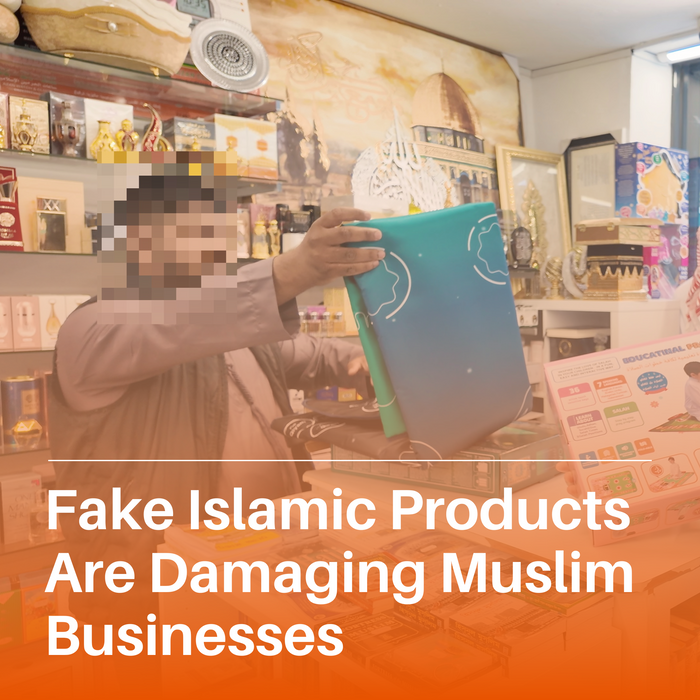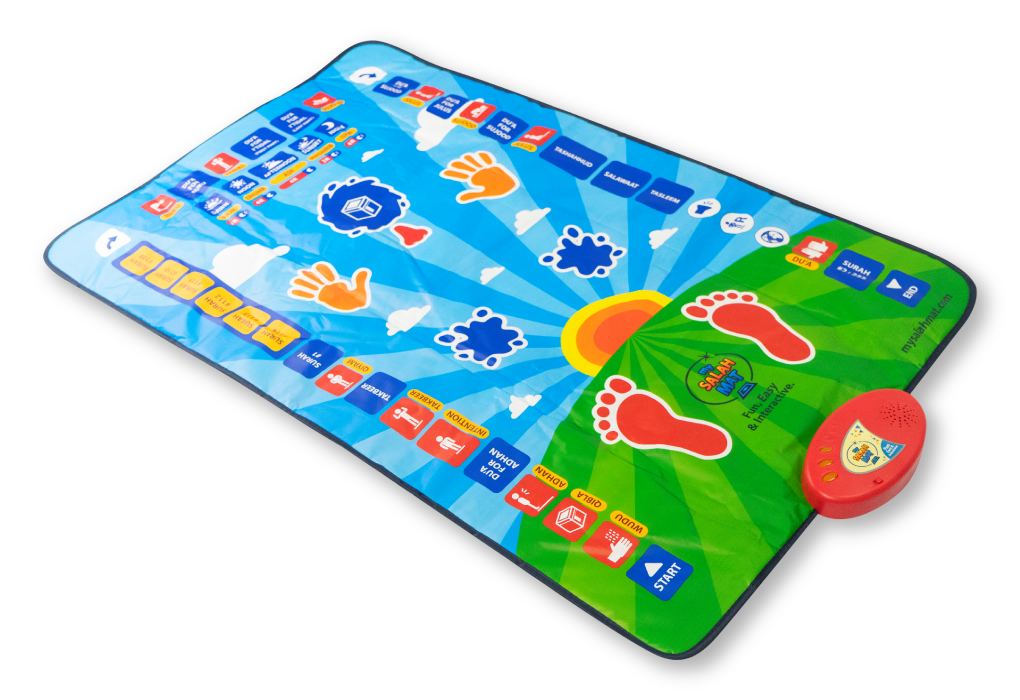Fake Islamic Products Are Damaging Muslim Businesses

Our founder, Kamal Ali, has released a powerful short documentary exposing shops in East London for allegedly selling counterfeit Islamic products, raising serious concerns over ethics, safety, and community accountability.
Watch the full documentary here 👉
Kamal Ali travelled from Newport to London to investigate repeated reports of fake versions of his product being sold behind East London Mosque.
In his documentary, Kamal visits multiple Islamic retailers and records interactions with shopkeepers who, despite receiving cease and desist letters, continue to stock counterfeit products. Some of these fakes are nearly identical in design but are made from substandard and potentially unsafe materials.
“It’s disheartening,” he says on camera. “These shops are selling products that look like mine, but they’re unsafe, and it’s affecting my business and my reputation.”
Islamic Ethics and Intellectual Property
Kamal’s invention has helped thousands of children and reverts around the world learn how to pray through interactive technology. His design is patented in the UK, and his brand is widely recognised within the Muslim community.
But counterfeit versions, he warns, are undermining both safety and Islamic business values.
“In Islam, selling counterfeit goods is like stealing,” he says. “It’s dishonest. Especially when you know it’s fake and you continue to sell it—it’s not just bad business, it’s un-Islamic.”
He compares the original product with the imitation: while My Salah Mat uses fire-resistant and waterproof fabric, the fake versions use flammable materials, putting users at risk—particularly children.


“How Would You Feel If Someone Copied Your Business?”
In one scene, Kamal purchases a counterfeit prayer mat for £35—just £10 less than the authentic version. Despite the small price difference, he says, the quality is worlds apart.
“We’ve had customers come to us complaining that their prayer mat isn’t working,” he explains. “But when we check, it turns out they bought a fake from one of these shops. It damages our reputation. And emotionally, it’s exhausting.”
He describes how years of dealing with counterfeiters have taken a toll. “This isn’t a one-off. It’s been six years of battling this. Some of these sellers know it’s fake. They say they’ll remove it—then quietly restock.”
A Call to Conscience
Despite his frustration, Kamal says the goal isn’t to shame individuals, but to protect customers and hold businesses accountable.
“I’m not doing this out of anger. I’m doing it out of a duty—to speak the truth and protect people. These shops could stock the original mat. It’s made by Muslims, for Muslims. Why support counterfeits?”
In one poignant moment, Kamal reflects on how damaging the issue has become. “If I can’t keep this business going, I can’t keep innovating. I designed something unique. Why undercut another Muslim business for a few pounds?”
He ends with a reminder to the wider community:
“We need to call this out. Because if we don’t, it continues. And in the end, it’s not just my business that suffers—it’s the trust in our community.”
Made by Muslims, for Muslims — a heartfelt reminder that when we create with purpose, we uplift our Ummah together.















 Liquid error (snippets/@AlternatingContentX line 127): Could not find asset snippets/CustomTexts-.liquid
Liquid error (snippets/@AlternatingContentX line 127): Could not find asset snippets/CustomTexts-.liquid